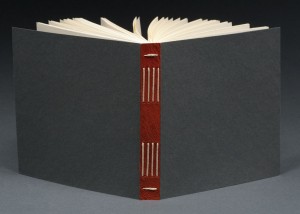 Recently, I walked into a bookstore and asked to be shown the short-story section. I should be honest and say, it had never occurred to me until it spilled out of my mouth that such a distinction should even exist. But I’d said it, and the gray-haired bookkeeper looked back at me blankly. “Short-story section?” he repeated like I had used an odd Yiddish term for prose. And so began my indignation that a form as distinct as poetry should be slotted in the catch-all section fiction. Since then, I’ve been on a quest to discover, purchase, and blare about great short-story collections.
Recently, I walked into a bookstore and asked to be shown the short-story section. I should be honest and say, it had never occurred to me until it spilled out of my mouth that such a distinction should even exist. But I’d said it, and the gray-haired bookkeeper looked back at me blankly. “Short-story section?” he repeated like I had used an odd Yiddish term for prose. And so began my indignation that a form as distinct as poetry should be slotted in the catch-all section fiction. Since then, I’ve been on a quest to discover, purchase, and blare about great short-story collections.
My most surprising find has been Natasha by Latvian/Canadian David Bezmozgis. David’s comedian rhythm and keen sense of irony are beautifully paired with his hopelessly lost Eastern European characters. But these are much more than “immigrant” stories: there’s never a hint of loss or longing. As charmingly different as they are, David’s characters are instantly recognizable, their dilemmas are universally understood.
The debut author Megan Mayhew Bergman’s collection Birds of a Lesser Paradise is delightfully satisfying for vastly different reasons. Megan’s stories stride along emotional boundaries so loaded and tense, one senses a trapeze artist at work, attempting the impossible and getting away with it. Love and mortality are often at stake; our lost human connection to the earth and to animals always lingers in the background. It’s a tender work by a new writer.
Finally, ever since I read Geraldine Brooks’s People of the Book the Haggadah has been on my radar. A recent article in the New York Times about the release of the New American Haggadah brought me to Nathan Englander, one of the editors, and his new collection of shorts What We Talk About When We Talk About Anne Frank. What does this have to do with the Haggadah? Nothing, only that I find it exciting to discover that a single author has such wildly different interests. Reading What We Talk About, you could never guess that someone so defining of current literature could edit a two thousand year old text. Nathan’s snappy, efficient prose has that unmistakable stamp of authority and craft. His characters are supremely vivid; each quiet gesture means something; everything and everyone serve a grand purpose. This is a collection as much to be enjoyed as to be pored over as a handbook on the form. It also makes a convincing case that we do, indeed, need a new bookstore section!
